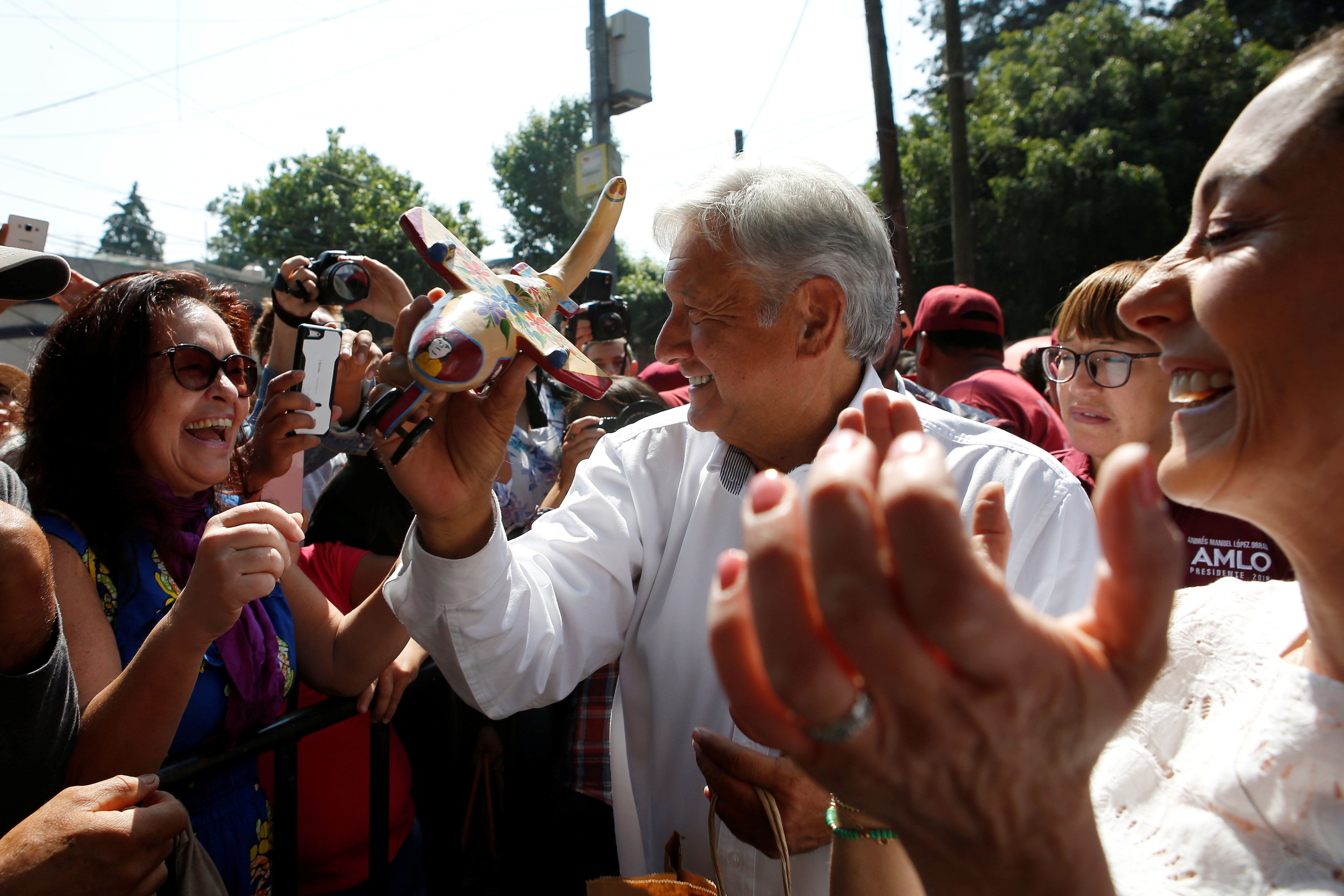A fight over a $13 billion project to expand Mexico City’s airport offers an early test for President-elect Andres Manuel Lopez Obrador (known as “AMLO”), who has pledged to totally upend his country’s politics.
Although he won’t take office until December, AMLO has already waded into national politics in a controversial way—organizing a nationwide referendum on a controversial project to transform the airport into the largest in the world.
The vote, which begins tomorrow and continues through Sunday, isn’t legally binding, but Lopez Obrador has pledged to honor the result when he becomes president. Taking policy directly to the streets is part of Lopez Obrador’s style – he got his start as a community organizer, and as mayor of Mexico City from 2000 to 2005, he often went to the streets to consult ordinary citizens directly on policy issues. This common touch enabled him to put millions on the streets when he claimed he was cheated out of the presidency in 2006. This legacy, and his commitment to pare back the excesses and luxuries of Mexico’s political class, is part of what got him elected president.
Politically he has little to lose here. Many Mexicans view the airport project as a boondoggle for an out-of-touch elite. (Two-thirds of Mexicans have never been on an airplane.) And if the results do favor construction of the airport, ascurrent polls suggest is the case, he can claim popular legitimacy and support the project without being politically tainted by the project’s costs and complications.
Opponents of the vote see a more sinister power play that skirts usual checks and balances. This non-binding referendum will be overseen by an NGO rather than the government. Ballots will be set up in just 500 of the country’s 2,448 municipalities, and fewer than 2 percent of citizens will likely cast ballots. Members of AMLO’s Morena party will be tasked with monitoring voting sites.
The bottom line: In calling this unprecedented referendum, AMLO hopes to bolster his populist credentials. The results, and how the president-elect responds if voters opt to keep the project, will say a lot about Mexico’s political future and whether its next president is more pragmatist or revolutionary.
